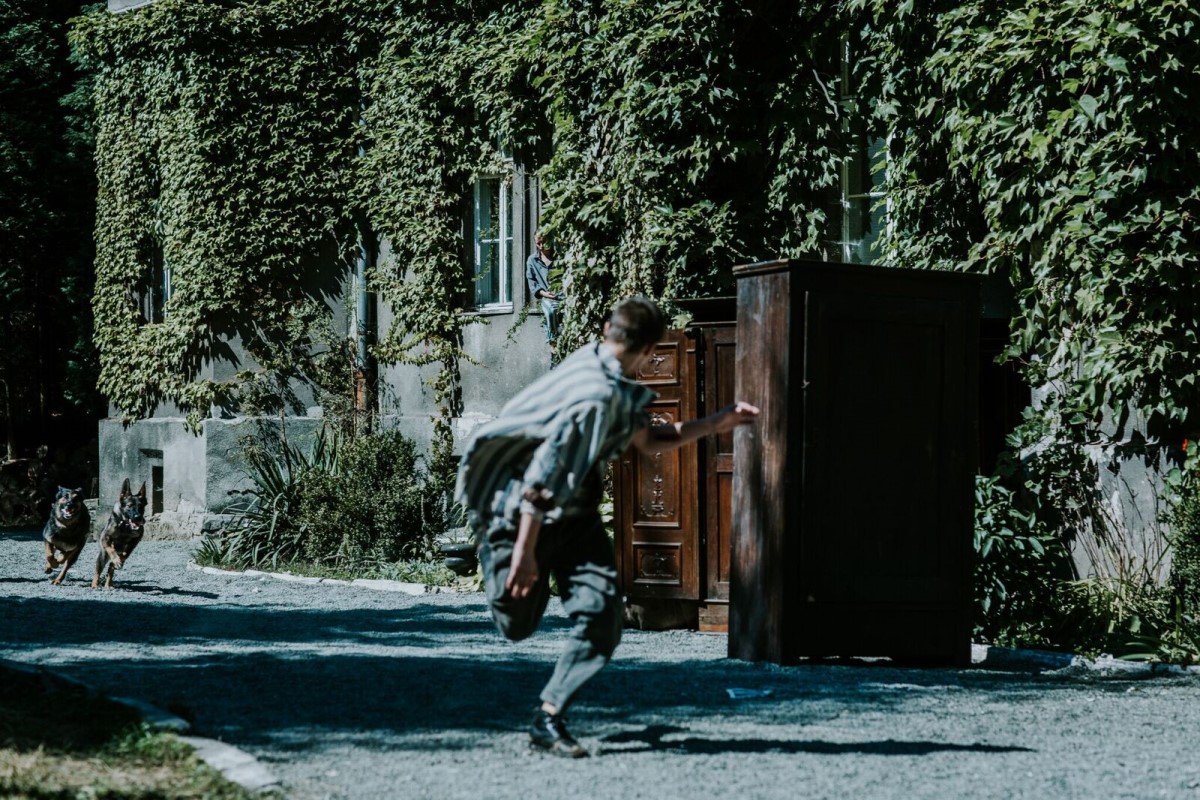
Once I managed to get over my bitter horror fan disappointment at the knowledge that, despite the title, this Polish production isn’t actually about a man turning into a wolf Lon Chaney Jr style, I found much to appreciate in director Adrian Panek’s film. It’s obvious from the (alas, non-lycanthropic) synopsis that we’re not in for a barrel of laughs, but it’s certainly an impactful piece of work. Think the non-supernatural scenes from Del Toro’s Spanish civil war films, and you may have a fair idea of what to expect here in terms of tone and content. Take into account that this particular film is inspired by true events, and it cuts even deeper.
Poland, 1945, the Gross-Rosen concentration camp. (See? Not a barrel of laughs.) The war may be over and the Nazis defeated on the national stage, and those incarcerated in the camp may now be liberated, but the bulk of these survivors are children who have been left orphans, and they don’t have much in the way of help for their re-integration into society. A group of eight children are re-housed at an abandoned country house in the middle of a forest, far from civilisation – and, most pertinently, without heat or electricity, and very low on food and drink. However, they are not the only survivors of the camp who are now without a home. The dogs, which were used at the camp to further brutalise the prisoners, are now without masters and also deprived of food, and find fresh meat in waiting in this remote, unguarded houseful of children.

Any film that deals with so harsh a reality as the Holocaust is never going to make for particularly easy viewing, and to replay such genuinely horrific times from the perspective of children only serves to intensify things. From the off, it’s clear that Werewolf is poised to expose the cruelty of adults in all its ugliness – and worse yet, the affect that takes on the children exposed to it, not simply through pain and degradation suffered by the children, but the loss of innocence and humanity. Many of the most chilling moments come from the dead eyes of children who have either been left totally desensitised by the atrocities they’ve experienced, or worse yet their own sociopathic inclinations have been normalised by all they’ve seen of the world.
Still, Werewolf is not wall-to-wall reality-based character-driven drama, as once the dogs arrive we’re into survivalist horror territory. In a curious way I found myself thinking of the film as some unexpected midway point between Schindler’s List and such contemporary creature features as Burning Bright, The Shallows and most recently Crawl; such an analogy probably sounds like snark, but that’s really not my intention, as I’ve thoroughly enjoyed all those films. Unsurprisingly, Werewolf is far less sensational in its approach, and appears to be paying far more mind to how such animals actually behave in real life; that having been said, certain aspects of the final scenes felt a little unconvincing to me, although I’ll confess to not knowing all that much about dogs. (What can I say, I’m more of a cat person.)
Again, any film dealing with the Holocaust demands some steel on the part of the audience, and as such Werewolf is doubtless going to prove too uncomfortable for many viewers. Even so, in common with the best survivalist horror stories it’s ultimately about human capacity to endure and overcome even the worst forms of adversity, and in that there’s definitely an uplifting and inspiring overtone. However, in common with the young protagonists, you have to be strong of heart and see it all through to reach that point.
Werewolf is available on dual format DVD and Blu-ray on 18th November, from Eureka!
